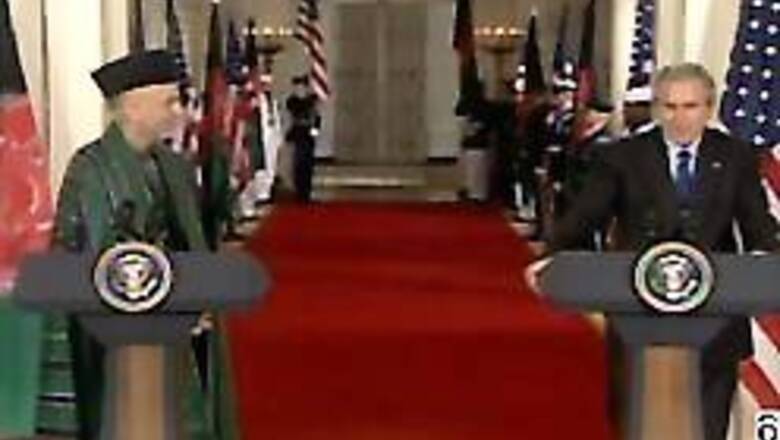
views
Washington: Islamist terrorists are adapting to global counterterrorism efforts, as the "jehadist movement" is becoming more decentralised and spawning offshoot organisations with anti-American agendas, according to a declassified intelligence document released on Tuesday.
The movement lacks a global strategy, but new terror cells are likely to emerge, making it "harder to find and undermine jehadist groups," states the National Intelligence Estimate on global terrorism trends.
The report adds that the US-led Iraq war has become a "cause celebre for jehadists, breeding a deep resentment of US involvement in the Muslim world and cultivating supporters for the global jehadist movement".
If it is perceived that the jehadists in Iraq are succeeding, it will fuel more extremism, according to the report. But if the jehadists are perceived to have failed, "we judge fewer fighters will be inspired to carry on the fight", the report states.
On Tuesday, President Bush angrily lambasted a media report that said the document asserted the Iraq war had increased the terrorist threat to the United States.
He added that media accounts of the leak of the intelligence report were meant to "create confusion in the minds of the American people" and promised to push Director of National Security John Negroponte to declassify the findings so "everyone can draw their own conclusions."
The NIE findings state that US-led counterterrorism efforts have "seriously damaged" al-Qaeda's leadership and operations, but that the group still poses "the greatest threat to the homeland and US interests".
It adds that Muslims who describe themselves as jehadists are increasing in "number and geographic dispersion".
"If this trend continues, threats to US interests at home and abroad will become more diverse, leading to increasing attacks worldwide," the report states.
Fighting jehad -
The report credits four factors with facilitating the spread of the jehadist movement:
1) Entrenched grievances, such as corruption, injustice and fear of Western domination
2) Jehad in Iraq
3) The torpid pace of economic, social and political reforms in Muslim nations
4) A "pervasive anti-US sentiment among Muslims
PAGE_BREAK
The solution requires more than killing or capturing al-Qaeda leaders, the estimate states, but "the loss of key leaders, particularly Ayman al-Zawahiri and [Abu Musab] al-Zarqawi, in rapid succession, probably would cause the group to fracture into smaller groups."
The NIE was issued in April, several weeks before al-Qaeda in Iraq leader al-Zarqawi was killed in a US airstrike.
Among ways to combat the growing Islamist terror movement are exposing the jihadists' radical ideology and urging respected Muslim leaders to denounce terrorist tactics, according to the report.
For instance, the idea of a government based in ultraconservative Islamic law, or Sharia, doesn't sit well with the majority of Muslims, the report states.
Exposing the jehadists' "ultimate political solution" would help divide jihadists "from the audiences they seek to persuade."
Also, condemnations of violence by notable clerics signal a trend from terror to peaceful political activism, the report states.
The rejections of violence reduce "the ability of radicals to capitalise on passive community support. In this way, the Muslim mainstream emerges as the most powerful weapon in the war on terror."
The US also must focus its efforts on stopping jehadists from obtaining chemical, biological, radiological and nuclear weapons, and on the increased use of the Internet to "communicate, propagandise, recruit, train and obtain logistical and financial support," the report states.
The full findings are posted at the Office of the Director of National Intelligence website. (www.dni.govexternal link).
(With inputs from Andrea Koppel and Ted Barrett)



















Comments
0 comment